Islamic State brides in Syria need to be carefully vetted before being allowed home
They’re pleading with the Australian government to bring them home, but dangerous assumptions are being made about brides of Islamic State fighters who could pose ongoing security threats if they return Down Under.
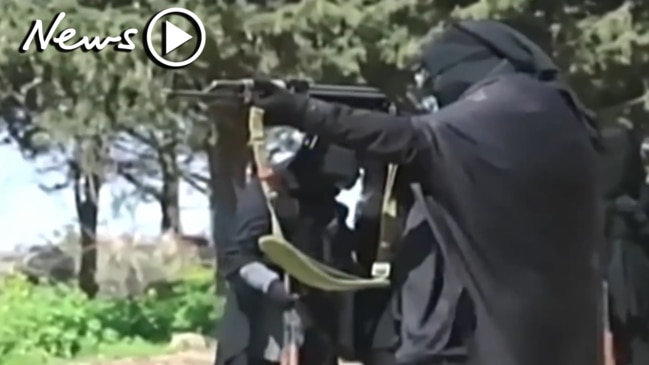
Crime in Focus
Don't miss out on the headlines from Crime in Focus. Followed categories will be added to My News.
Exclusive: Australian brides of Islamic State (IS) fighters could pose ongoing security threats and must be carefully vetted an international war crimes investigator has warned.
Bill Wiley, the head of the Commission for International Justice and Accountability (CIJA), said the ISIS women played various roles within the terrorist group and, in some cases, may have had a clear criminal intent.
“It’s a mistake to think that the women, the adult females with Islamic State, were only there as wives or with no authority outside the household,” Mr Wiley told News Corp.
“You can’t make any assumptions about the women, just like the men,” he said.
“They need to be vetted with an eye to two things:
“Was she simply a housewife? Or indeed was she part of the IS security structures? And it’s possible they were involved in both.
“Islamic State internal security structures did incorporate substantial numbers of women basically to deal with offences by other women … Australian, Canadian, British, Russian or any others – it makes no difference. “
Mr Wiley spoke out after visiting Australia and speaking with law enforcement and government officials about the work of CIJA, and as dozens of Australian women and children trapped in a camp for families of IS fighters in northeastern Syria have been pleading with the Australian government to rescue them.
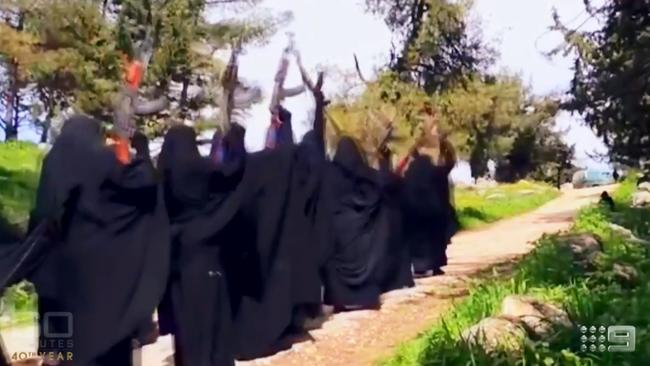
It is understood there are about 66 Australians – 21 women and 45 children – held in the al-Hawl camp containing about 70,000 family members of IS fighters.
CIJA is the first and only private body which focuses solely on investigating and collecting evidence of war crimes, crimes against humanity and genocide with the aim of holding perpetrators to account for their crimes.
Mr Wiley said the IS regime was extremely bureaucratized and kept extensive records, so it is likely more information will come to light about the role of the IS brides.
“They (IS) kept records on absolutely everything, incredibly mundane stuff, either in paper form or digital form,” said Mr Wiley.
“And that includes information about the females who went to Syria and Iraq.”
He said whatever the reason the women were in Syria and Iraq, for marriage or otherwise, authorities likely tracked their presence, as IS at its peak had quite involved social programs.
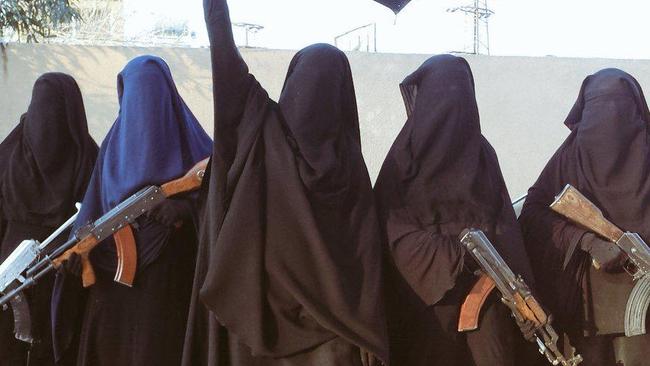
“The salaries of fighters would vary according to whether they had a spouse, how many spouses they had, how many children they had, and so forth. If you ask about Australian females, women or indeed any other nationality, the odds are very high that their names are going to turn up in documentary and digital records, identifying their role … whether it was as a wife or women were integrated into certain security structures,” he said.
He said women were in some cases armed and played a role in internal security within the population centres and engaged in beatings of other women.
“It’s important not to approach the phenomenon of Islamic State women from a, if you will, a chauvinistic or paternalistic perspective, that they are to start with the assumption that they were victims,” he said.
“In some cases sure, trickery, love, whatever may have taken them into Syria and or Iraq. But in other cases, there may have been a clear criminal intent.
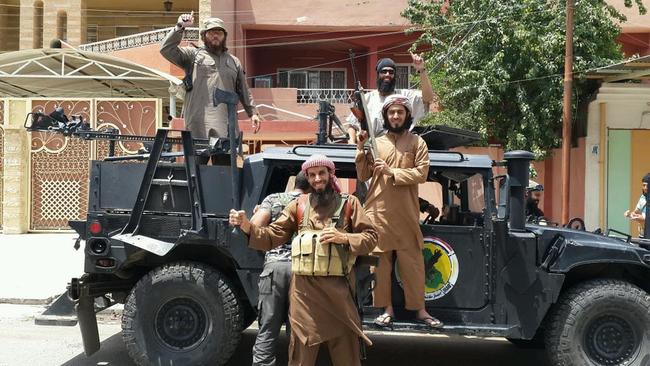
SLAVE TRADERS
One of Australia’s most notorious IS fighters “owned” at least six slaves at one time, at the height of his reign of terror in Syria.
Information about how the man, convicted terrorist Khaled Sharrouf who has since been killed in Syria, bought the girls, is likely to emerge as evidence is gathered about crimes committed by Australian foreign fighters.
Sharrouf, who was also known by the name Abu Zarqawi al-Australi kept Yazidi girls as slaves and one has already spoken publicly about how he bought her at a makeshift slave market.
The young woman known by the assumed name, Kaleela, to protect her identity, has given testimony to Iraqi lawyers saying that she and another young girl of 11 years old were taken to Sharrouf’s house, where they found six more Yazidi girls who were to be “married” to Sharrouf or to work as his servants.
Sharrouf won’t be held to account for his crimes, but Investigators from the Commission on International Justice and Accountability (CIJA) are gathering documents, eye witness accounts and conducting interviews with IS members in a bid to collect enough evidence for war crimes prosecutions against other fighters.
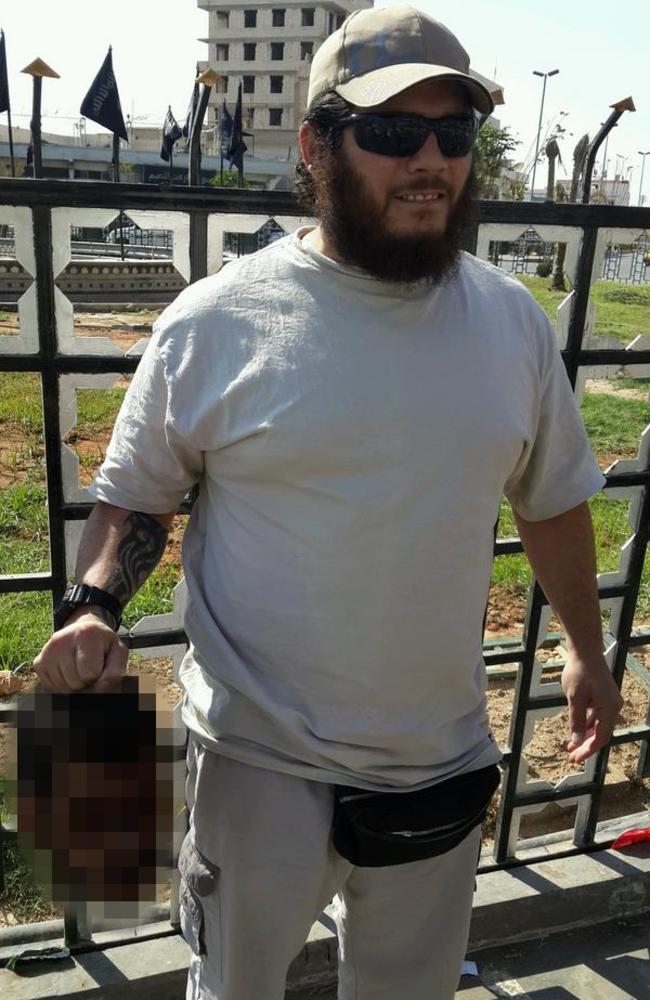
The head of CIJA, Bill Wiley, said his organisation has document holdings on a string of Australian foreign fighters and expects to gather even more as they access former battle fronts in Syria and Iraqis.
He said they had information about a high-ranking IS official keeping numerous slaves.
Mr Wiley said all information is available to the Australian authorities and the hundreds of thousands of documents already smuggled out are searchable in numerous ways by nationality, and by name, by alias or kunya and by area.
He said it is important for authorities trying to bring successful prosecutions, to also have contextual evidence on the IS system of slavery.
Australia had one of the highest per capita number of foreign fighters anywhere in the world with more than 300 people believed to have travelled to Syria and Iraq to fight with IS.
The return of those foreign fighters is one of the Federal Government’s highest national security issues.
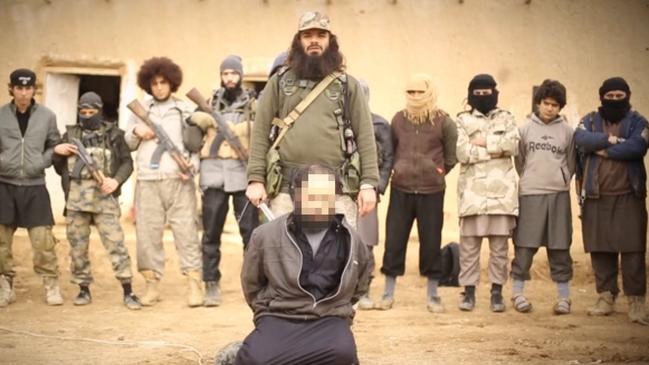
Which is why Mr Wiley said collecting the evidence of wrong doing of any potentially returning fighter is so important.
The evidence is being collected in cooperation with a range of armed opposition groups and security – intelligence services by directly-retained investigators from CIJA.
So far CIJA has completed six prosecutable case files based on International criminal and humanitarian law which have been transferred to UN criminal mechanisms.
It has provided services, data and bio data to law-enforcement bodies including Europol and Interpol and responded to 126 requests for assistance from 12 countries for information about 613 suspects.
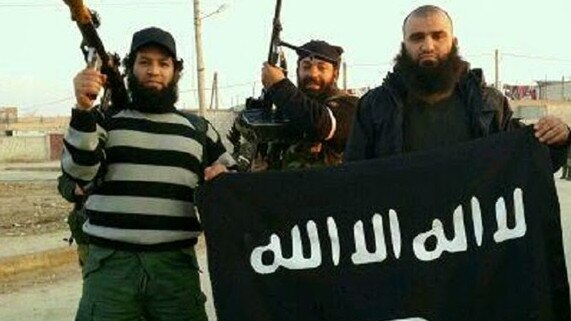
DOCUMENTS SMUGGLED OUT
More than 850,000 documents have already been smuggled out of Syria and taken to a secret location in Europe ready for prosecutors building war crimes cases.
Some have been used in high-profile cases such as the killing of war correspondent Marie Colvin proving she was deliberately targeted and killed by the Assad regime in 2012.
Bill Wiley the head of the Commission on International Justice and Accountability (CIJA) said they already have holdings on male and female “Australian foreign fighters who went to serve with IS.
“Some we believe are dead, others are not. That information, as with any other western state, is available to the public authorities.”
“We receive a number of requests every week from law enforcement authorities. We’ll run the names and that’s information specific to individual suspects,” said Mr Wiley.
“The authorities are also looking for contextual evidence … about the Islamic State system of slavery, Islamic State more broadly a criminal organisation.
Mr Wiley said CIJA has identified large repositories of unexploited IS documentation that are still in the former Syrian and Iraqi war zones.
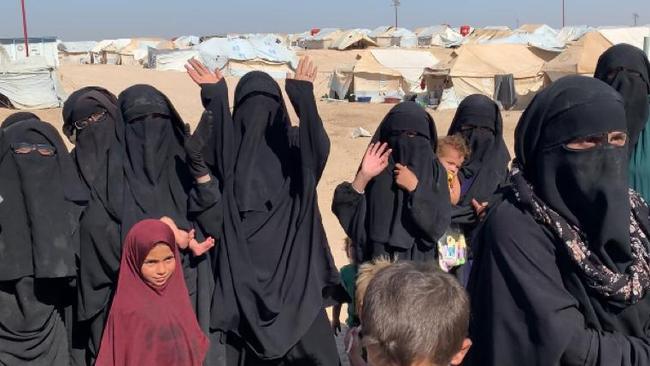
Mr Wiley said once those caches of evidence are secured, the Australian Government may find on a case-by-case basis, there is sufficient evidence to detain individuals, as they step off a plane, for offences that are sufficiently serious that they won’t get bail and will be successfully prosecuted with a lengthy custodial sentence.
Mr Wiley warned that IS suspects, in many cases, will pose a continuing threat to public security. And in addition to whatever offences they may be responsible for in Syria or Iraq, they may still be operational when they get back into Australia, Europe and North America.
“I think governments like Australia saying they don’t want to take fighters back, is because they are having trouble proving what they did on the battlefields or other situations.”
But he said CIJA may be able to provide enough evidence, through documentation kept by IS itself, to keep them off the streets as long as possible – mitigating the ongoing public security threat many cases will pose.
“Stuff gets left behind by IS when it’s defeated or retreats from a position or indeed the Syrian regime when it was on the defensive earlier in the war in Syria.
“We have about 65 people on the payroll between those two countries. Syrians and Iraqis, their principal mission is to collect these materials in the field. Despite how dangerous it is, things have gone quite well in Iraq. But we’ve had a couple of men killed in Syria, a number wounded, others captured.
Originally published as Islamic State brides in Syria need to be carefully vetted before being allowed home
